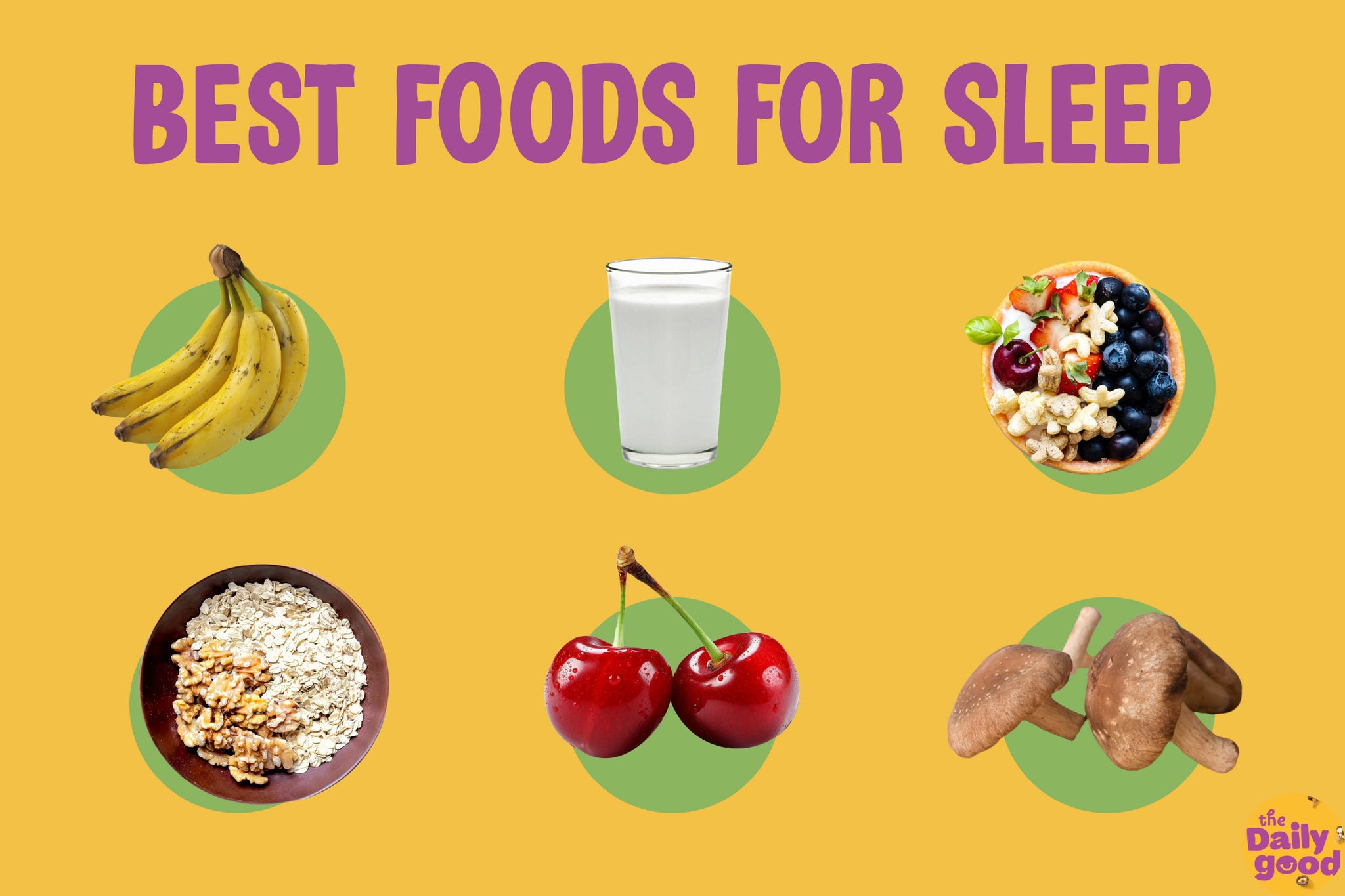Your Cart is Empty

Having trouble sleeping? Try these six best foods to eat before bedtime that can help you unwind and fall asleep faster.

If you’ve ever been told to drink a glass of warm milk before bed, there’s a good reason for it.
Milk contains tryptophan, an amino acid that helps your body produce melatonin—the hormone that regulates your sleep-wake cycle.
A warm glass of milk can be incredibly soothing after a long day, helping your body relax and get ready for sleep.
To make it even more comforting, add a teaspoon of honey or a dash of cinnamon.

Yogurt is another excellent choice for a bedtime snack. It’s packed with calcium, which not only supports bone health but also helps your brain use tryptophan to produce melatonin.
On top of that, yogurt contains probiotics that improve gut health, and better gut health has been linked to better sleep.
A small bowl of plain yogurt can be just enough to help you wind down without feeling too full. For an extra sleep boost, try adding a few banana slices or a drizzle of honey—both work wonders for relaxation.

Bananas are packed with magnesium and potassium, minerals that help relax your muscles and reduce tension.
Bananas also contain tryptophan, which is used by the body to produce melatonin.
Try eating a banana about an hour before bed can help you unwind after a long day.
If you’re looking for a soothing bedtime treat, blend a banana with some milk or yogurt to make a creamy, sleep-inducing smoothie.

Oatmeal before bed can also be a good idea.
Oats are full of complex carbohydrates that help boost serotonin levels, which in turn promotes relaxation, making them a perfect choice to support a good night’s sleep.
A small bowl of oatmeal with some tart cherries or a sprinkle of cinnamon (which is proven to help you sleep) can be just what you need to wind down.

Tart cherry juice is a powerful natural sleep aid.
Tart cherries are one of the few foods that contain melatonin, the hormone that helps regulate your sleep-wake cycle.
Drinking tart cherry juice has been shown to improve sleep quality and duration.
Try having a small glass—about eight ounces—of unsweetened tart cherry juice an hour before bed.
It’s simple, effective, and worth a try.

Shiitake mushrooms might not be the first food that comes to mind when you think about sleep, but they can be quite effective.
These mushrooms are rich in vitamin D and magnesium, both of which play a role in regulating sleep patterns.
Shiitake mushrooms also have beta-glucans, which help reduce stress and promote relaxation by supporting the immune system and reducing inflammation.
Adding them to a light dinner—like a stir-fry or a simple soup—can give your body the nutrients it needs to prepare for sleep. Just make sure to keep the meal light—heavy dinners can make it harder to fall asleep comfortably.
If cooking isn’t your thing or you’re craving something crunchy, try grabbing a bag of The Daily Good shiitake mushroom crisps. They’re light, crispy, and can help satisfy late-night cravings while promoting a good night’s sleep!